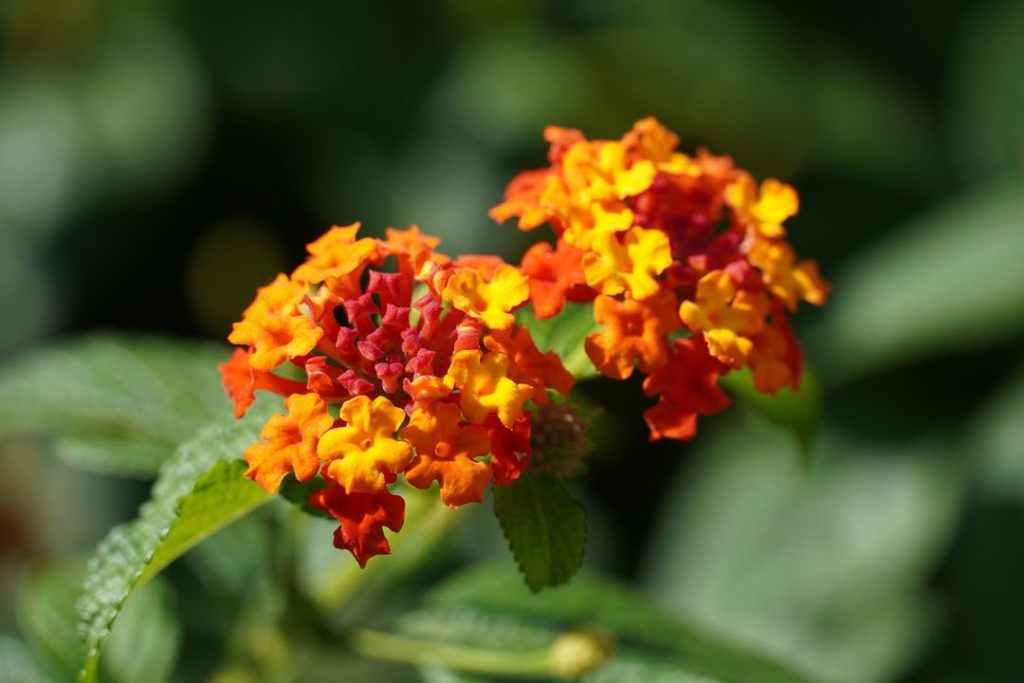
Anguilla
Wild Lantana “Sage Cop”
Lantana camara

General Description/Cultural Significance
Wild Lantana, or “Sage Cop,” Lantana camara, a native perennial flowering shrub, grows all over Anguilla’s natural landscape. The clusters of its white or lavender flowers are highly fragrant and known to everyone on the island. The aroma is highly perceivable when rain is falling. Bush tea is made by the locals for medicinal purposes and the plant has anti-microbial, -fungicidal, and -insecticidal properties. It is also fodder for sheep and goats.
Climate Change/Conservation Status
Like the majority of islands at this point, Anguilla is suffering from coastal erosion, which is affecting property values and insurance costs. In September of 2017, 90% of the electricity infrastructure and water supply was damaged by Hurricane Irma. The majority of Anguilla’s government facilities are located along the coast, and are being threatened by the rising tides, wind, and accelerated erosion. It is estimated that 63% of the major tourism properties are currently at risk, as are the beaches, the most valued asset for the island’s tourism.
In 1993, the country established the Anguilla National Trust to protect the island’s natural environment and preserve its natural and cultural resources. Rehabilitation of the island’s sand dunes is an ongoing project for them. Sage Cop has now taken on new cultural value as a significant plant in the fight against climate change. It is used in the rehabilitation process of unfertile land, because the ash of the plant is rich in potassium and magnesium. Because of its extensive root system, it is highly valuable in controlling soil erosion. The plant is also drought tolerant and can survive hot forest fires, re-growing from its base. These are increasingly desirable attributes to combat coastal erosion and flooding due to sea level rise. Inland flooding is becoming a common event. Additionally, the island is experiencing more extreme weather, including hurricanes that bring about unprecedented storm surges.
It is feared that the impact of climate change could bring an end to the country’s fishing industry. Climate change is affecting the calcium-carbonate balance in plants and animals and Anguillans are seeing spread of disease among them. Invasive species such as lionfish are outcompeting the native parrot fish and sturgeon fish. These same problems are damaging the conch, lobster, and reefs. The non-native sea grasses are outcompeting the native sea grasses, and Sargassum influx has begun to cover beaches and coves on a regular basis, which affects tourism. For an island economy, these new extremes are impacting food security as well as economic stability.
On Anguilla, however, the culturally important Sage Cop has become uniquely invaluable in climate change adaptation practices to improve resilience and sustainability. Nevertheless, the island and all life there remains extremely vulnerable to the effects of the rising sea, ocean acidification, inland flooding and infrastructure damage.
Alternate Names
Coronitas
Diris
Kantutay
Lantana
Sage Cop
Wild Sage
Sources
Anguilla Tourist Board, Anguilla, British West Indies. This statement can be found on the World Sensorium original website.
Granderson, A., et. al., 2018. Assessment of vulnerability to climate change in the Anguilla and Montserrat fisheries sector. Caribbean Natural Resources Institute (CANARI). Port of Spain: CANARI. [website]
Caribbean Regional Headquarters, “CARIBSAVE Climate Change Risk Profile for Anguilla”
Fraser, J., 2019. Anguilla’s Fishers Share their First-Hand Knowledge About Climate Change and its Impact. Inter Press Service. [website]
Ghisalberti, E.L., 2000. Lantana camara L. (Verbenaceae). Fitoterapia, 71(5): pp. 467-486. DOI: 10.1016/S0367-326X(00)00202-1
Plants for a Future. Lantana Camara. Plants for a Future. [website]
Rosenbloom, S., 2017. Caribbean Tourism Takes a Hit After Hurricane. The New York Times. [website]

